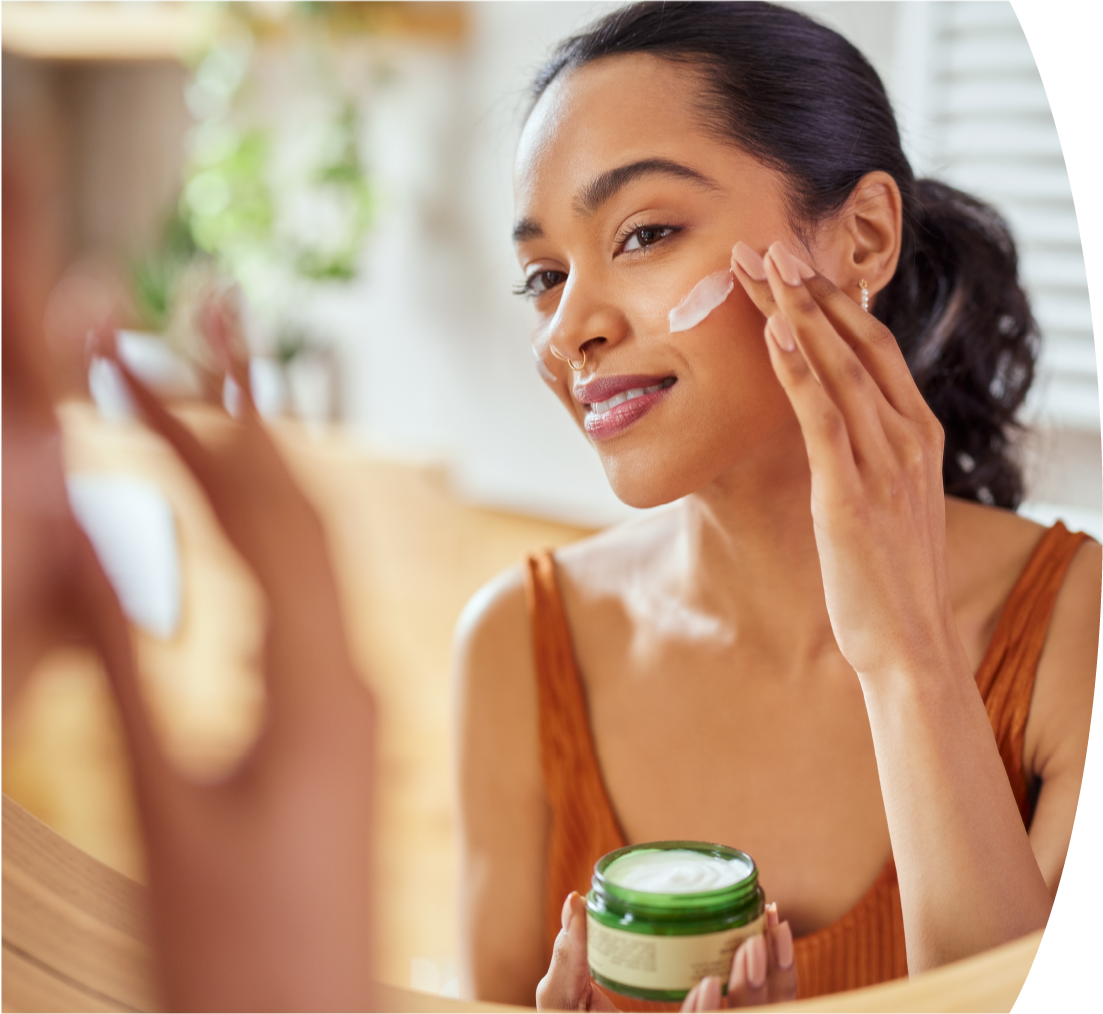Glypure® Glycolic Acid for skin care
Why chemical exfoliation with Glypure® is the gold standard.
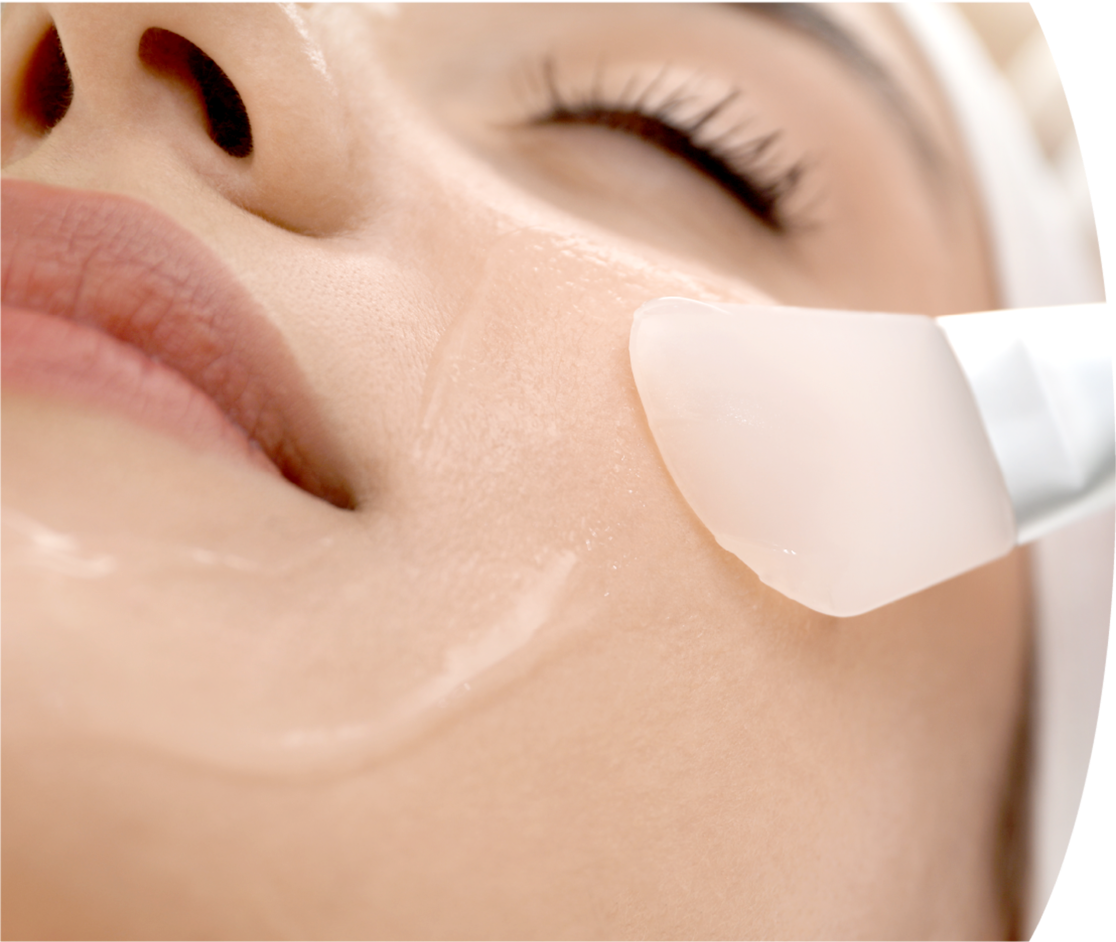
Chemical Exfoliation
Chemical exfoliation with Glypure® Glycolic acid works by dissolving the bonds between dead skin cells to reveal fresh skin underneath, allowing for a more even skin tone and texture. Glycolic Acid is the gold standard of exfoliation due to its strong affinity for the calcium ions which comprise the bonds between skin cells; Glypure® Glycolic acid’s Free Acid form (or protonated form) determines the efficiency of penetrating the skin and promoting cell turnover for a brighter and more youthful appearance.
Chemical vs. physical exfoliation
Physical exfoliation requires an abrasive material and scrubbing, which can exfoliate unevenly and cause irritation. The benefits to the skin are limited to the uppermost layer (stratum corneum), whereas chemical exfoliation can interact with the lower layers of skin and produce more cell rejuvenating effects.
Cell Rejuvenation
How Glypure® penetrates to promote healthier skin
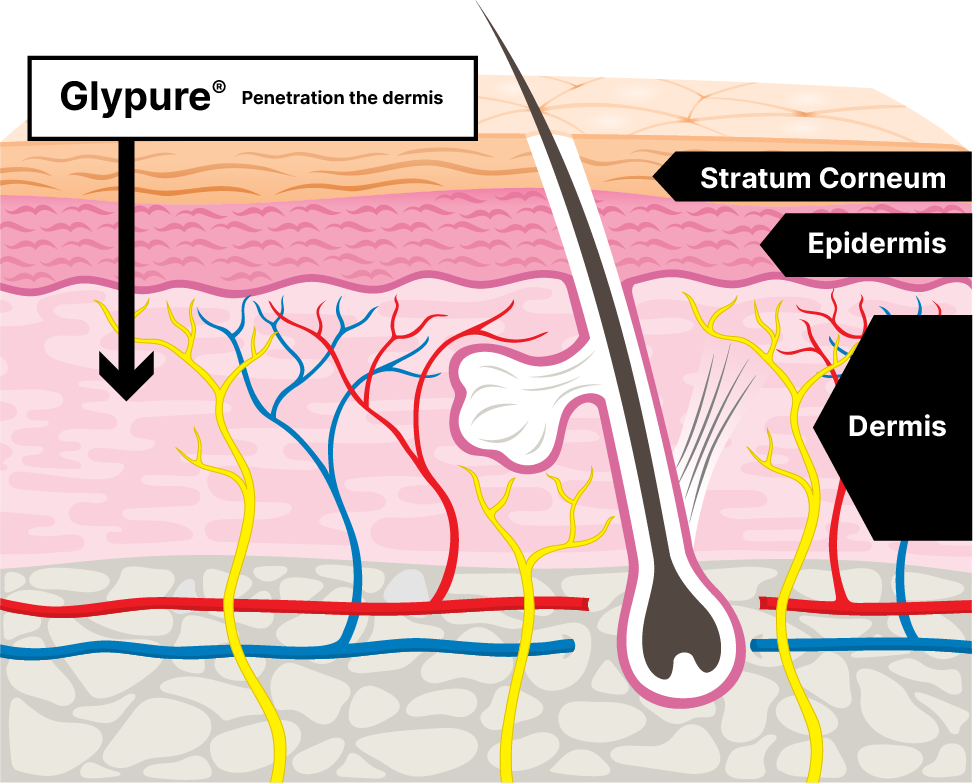
Glypure®’s free acid form can be tuned within a formulation to achieve different skin care benefits. By formulating leave-on products that have a lower free acid content, Glypure’s penetrating effects are slowed but continuous, helping to reduce skin irritation potential while maximizing moisturization and stimulating production of dermal matrix compounds.
- Stimulates collagen production by interacting with fibroblasts in the skin keratinocytes
- Stimulates production of hyaluronic acid within the skin
- Thickens the stratum corneum, reducing the appearance of wrinkles and fine lines
- Has humectant properties which provide immediate moisture to the skin
Glypure GL for sensitive skin care
Glypure GL is the anti-aging active ingredient for sensitive skin types
Time-release mechanism of Glypure GL consists of a fast ring-opening step where Glycolide reacts with the moisture in the skin (present as water vapor), and then undergoes a second slow reaction (~4 hours) to form 2 molecules of Glycolic Acid. By formulating with Glypure GL in anhydrous formats, the Glycolide molecule is left intact for a longer period of time, slowing the release of glycolic acid to the deeper layers of the skin where it can have the most impact for stimulation of collagen production and hyaluronic acid.
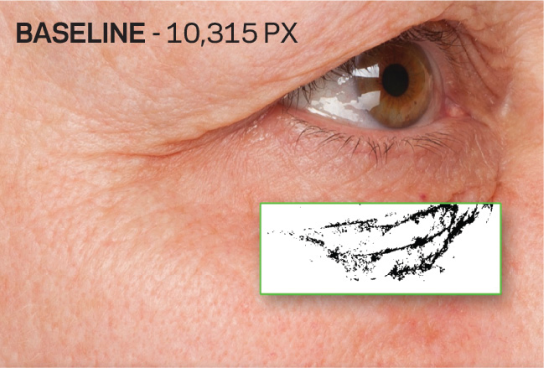
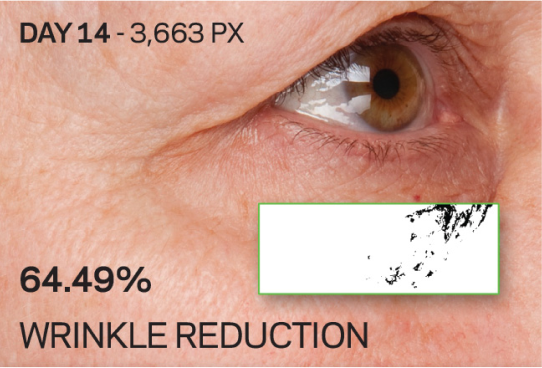
Glypure GL Clinical 28 Day, 25 Subject Trial
Skin Elasticity via Cutometer (R7)
Glypure GL improves the elasticity of the skin for a youthful tone
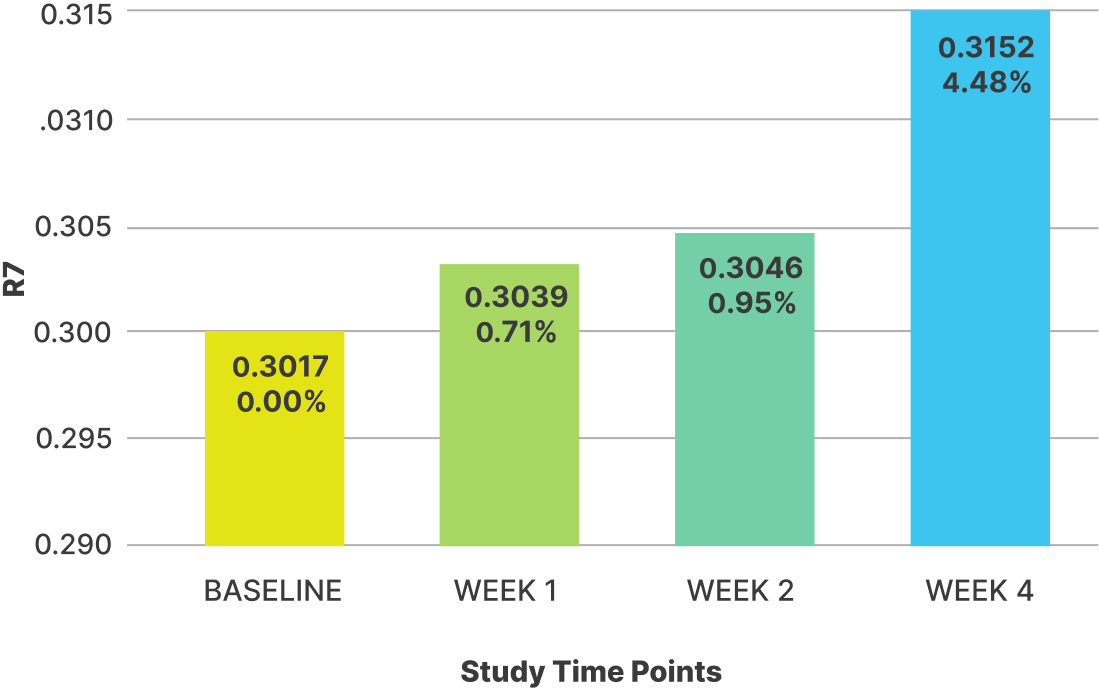
Electroconductivity via Novameter
Glypure GL increases moisture content of the skin from within
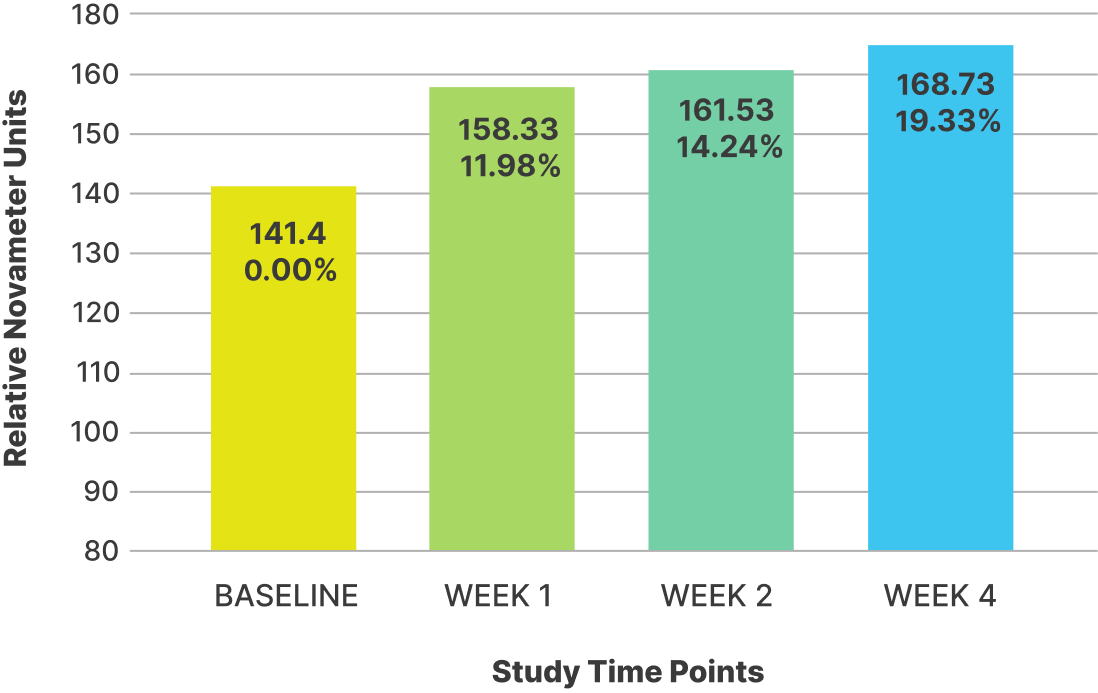
Roughness Reduction [SEr] via Visioscan
Glypure GL decreases fine lines and wrinkles, providing gentle yet effective anti-aging properties
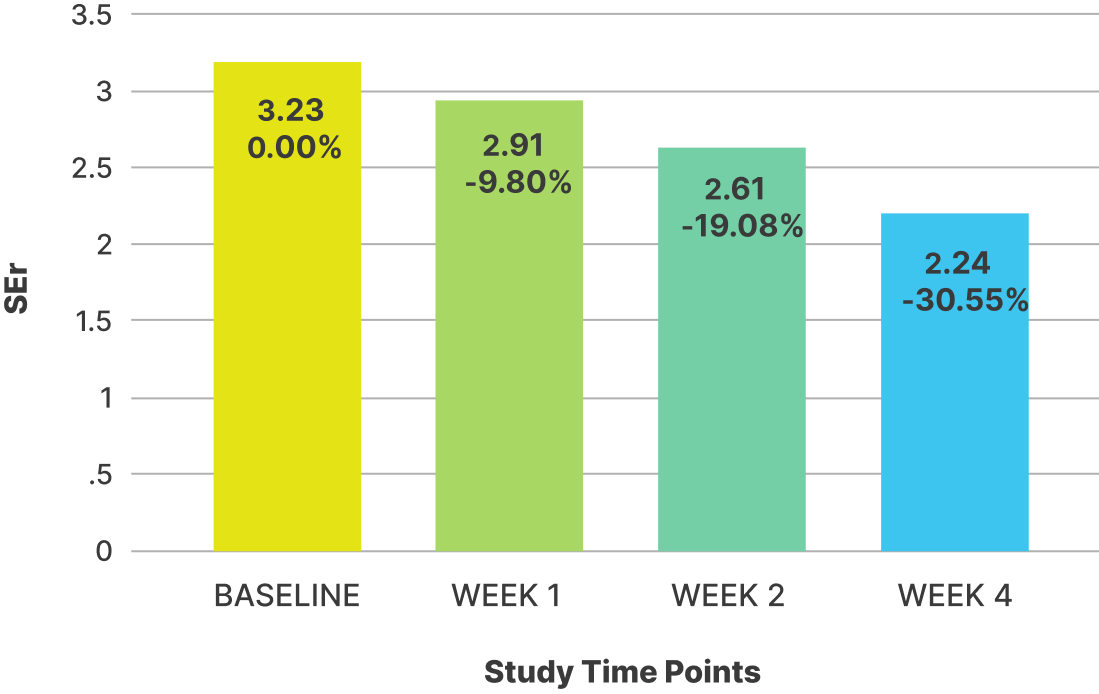
Glypure® Glycolic Acid for hair care
Glypure® Glycolic Acid is a useful ingredient for scalp & hair care products due to its small molecular size and multifunctionality.
Glycolic Acid penetrates the hair shaft and cortex, interacting with and stabilizing the hair keratin. The stabilized keratin is smoother, more managable, and more resistant to physical and heat damage.
Additionally, Glypure® can counter the increased stiffness associated with hair damage, making this a key ingredient in products formulated for chemically treated or damaged hair. Glypure® may also find use in products formulated for hard-water due to its functionality as a chelant; binding and sequestering metal ions that cause hair to look dull and brassy.
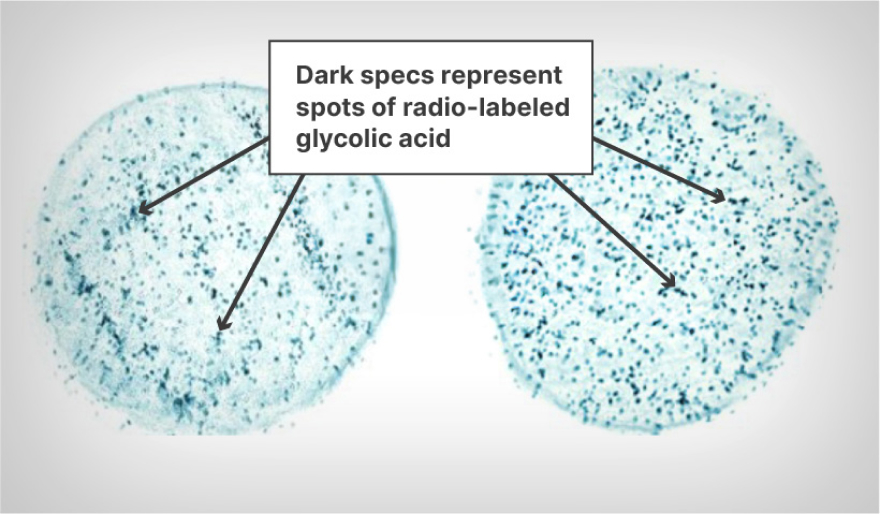
Radio-labled glycolic acid shown penetrating into the cortex of the hair keratin
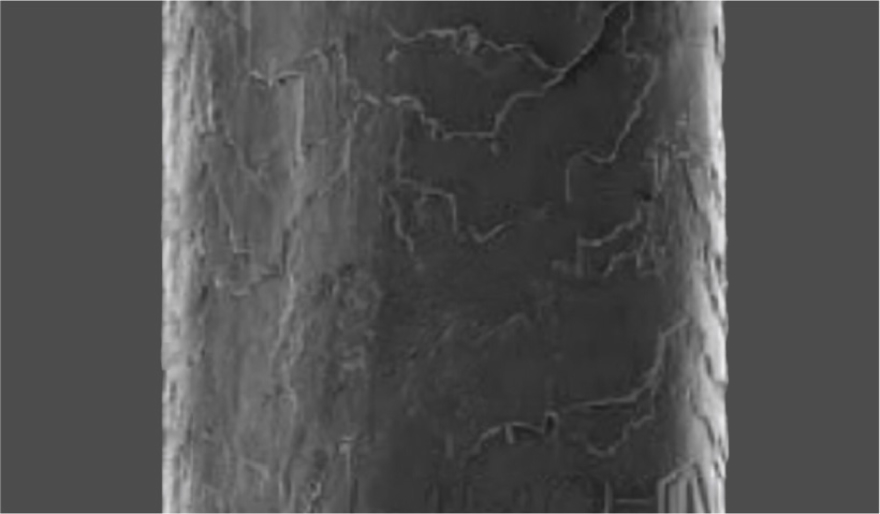
SEM of healthy hair at 1,500X – The smooth, scale-like structures are the cuticle, the outermost protective layer
Glypure® helps hair withstand heat damage to the keratin
Human hair is made up of α-keratin; this form of keratin contains entrained water molecules that stabilize the keratin structure within the hair shaft. At high temperatures, water can denature from the keratin in the hair, changing the structure from α-keratin to β-keratin, and make the hair more brittle and susceptible to damage.
Differential Scanning Calorimetry (DSC) studies were performed on hair treated with Glypure® against untreated hair to compare the temperature at which water denatures from the keratin. An increase in denaturation temperature indicates a positive impact on maintaining the hair structure, equating to heat resistance, softness, and improving overall strength of the hair shaft.
Glypure® is beneficial for healthy and chemically treated hair –across all hair types.
Glypure® Healthy Hair Care DSC Research
Denaturation temperature of the keratin when exposed to different treatment solutions
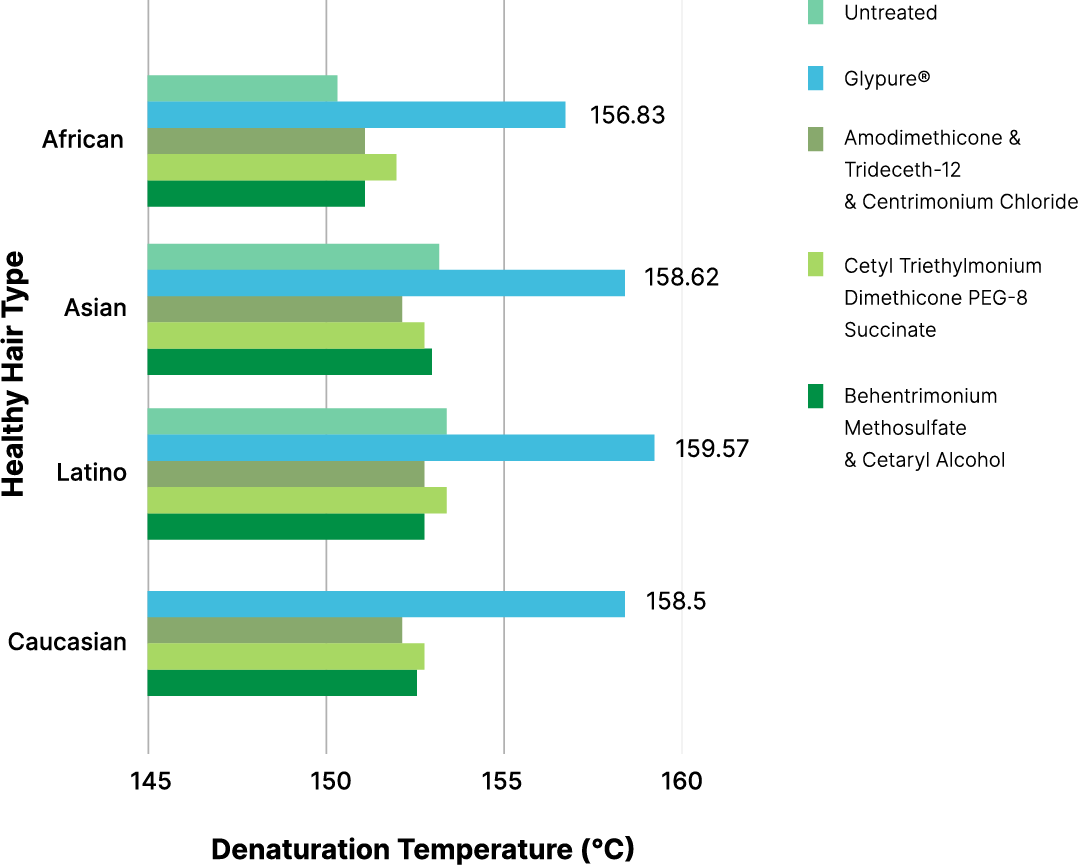
Healthy hair treated with Glypure® had an average increase in keratin denaturation temperature of 6.1°C across Asian, Latino, and African hair types vs. control. Other conditioning solutions presented little-to-no increase vs. control.
Glypure® Chemically Damaged Hair Care DSC Research
Denaturation temperature of the keratin when exposed to different treatment solutions
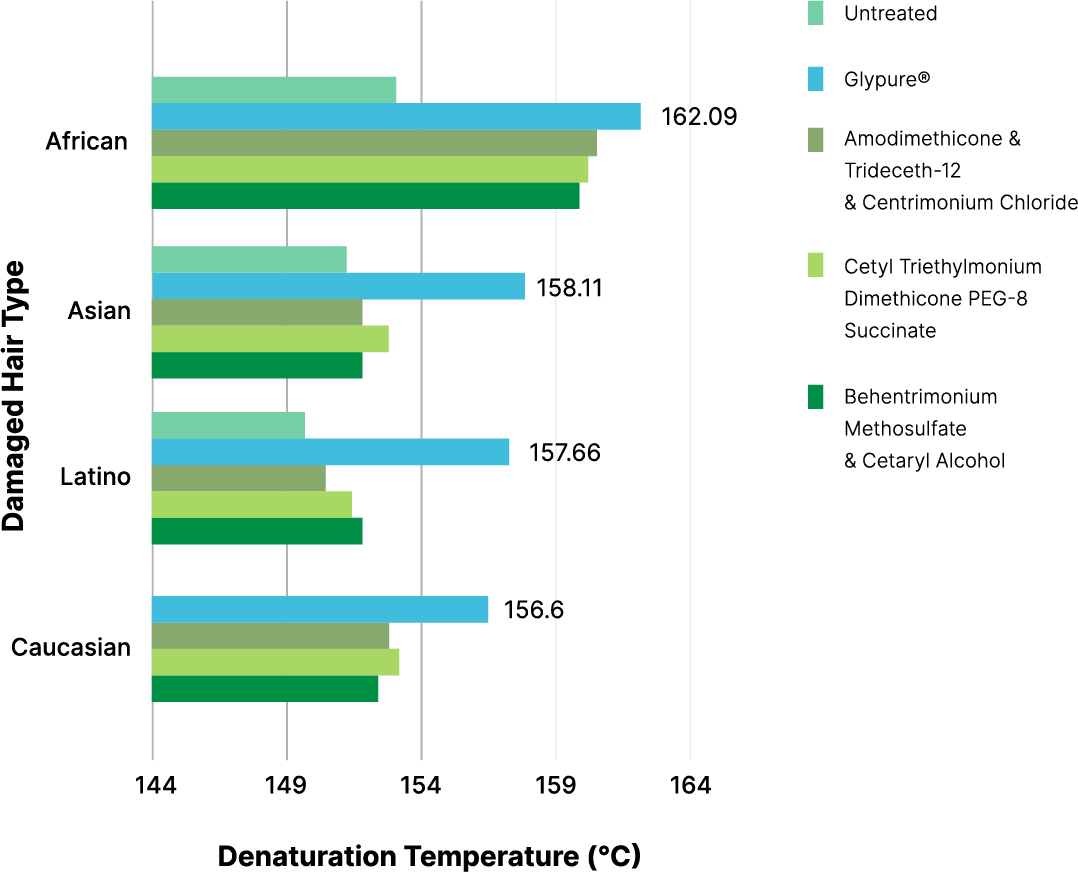
Chemically damaged hair treated with Glypure® had an increase in keratin denaturation temperature averaging 8 °C across Asian, Latino and African hair types vs. control; outperforming the other conditioning solutions by 1.5x+.
Glypure® as supporting ingredient
Glypure® boosts efficacy of preservation
Glypure® Glycolic Acid has demonstrated antimicrobial properties that, when used in personal care formulations, can provide the basis for your product preservation. Because Glypure® glycolic acid has multiple mechanisms of action, it can be used in sufficient quantities in some formulations to be self-preserving or used in combination with other boosters to provide reliable and cost-effective preservation. Glypure® can also help reduce the amount of traditional preservative needed in formulation.
The following table lists minimum inhibition concentrations (MIC) of common contaminants in personal care formulations, as challenged against pure glycolic acid and citric acid in deionized water. In many cases, glycolic acid performs better than the commonly employed preservative citric acid.
Summary of MIC Endpoints for Glycolic Acid or Citric Acid in Deionized Water for Selected Microbes.
All values given in weight percent.

Comparing Glypure® Glycolic Acid with other personal care active ingredients
When it comes to selecting an active ingredient for targeting multiple hair and skin care challenges, Glypure® Glycolic Acid’s stability and versatility make it a great option to use as a standalone or in combination with other actives.
Glycolic Acid vs. Other Anti-Aging Active Ingredients

Glycolic Acid vs. Other Organic Acids

Have questions? Would you like to request some samples?
Contact us today!
